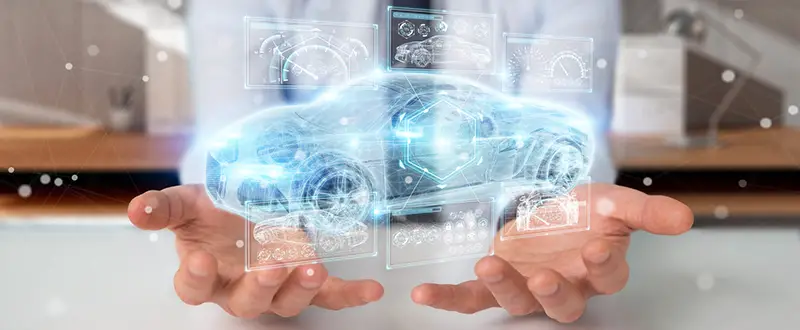Click here to get this post in PDF
The automotive industry is undergoing a significant transformation due to technological advancements. Integrating digital technologies, electric vehicles, and autonomous driving features has disrupted the traditional automotive market. As a result, the future of automotive technology is exciting, and there are several trends and innovations to watch out for in the coming years.
Electrification
The rise of electric vehicles (EVs) is one of the most significant trends in the automotive industry. Several factors, including concerns about climate change, pollution, and the depletion of fossil fuels, drive the shift towards electric power. In addition, EVs offer numerous benefits, including reduced emissions, lower operating costs, and a smoother driving experience.
Battery technology is another critical aspect of electrification. The industry is seeing significant advancements in battery technology, including increased energy density, longer battery life, and faster charging times. However, there are still challenges to overcome, such as the high cost of batteries, the limited range of EVs, and the lack of charging infrastructure.
VW 1.6 TDi Mods
While electrification is a significant trend in the automotive industry, many traditional vehicles are still on the road, such as the VW 1.6 TDi. VW 1.6 TDi mods are aftermarket modifications that can enhance the performance and efficiency of these vehicles. Popular mods include tuning the engine for better power and fuel efficiency, upgrading the air intake and exhaust systems for improved airflow, and adding suspension upgrades for better handling.
Autonomous Driving
Autonomous driving is another trend that is transforming the automotive industry. There are different levels of autonomous driving, ranging from driver assistance systems to fully autonomous vehicles. While challenges, such as regulatory and ethical concerns, are still to be overcome, the potential benefits are significant. For example, autonomous driving can reduce accidents, improve traffic flow, and enhance mobility for people with disabilities.
Connectivity and Digitalization
The integration of digital technologies in vehicles is another trend to watch out for. The Internet of Things (IoT) and vehicle-to-everything (V2X) communication are making vehicles smarter and more connected. This connectivity enables vehicles to communicate with other vehicles, infrastructure, and the cloud, which can improve safety, traffic flow, and efficiency.
However, the integration of digital technologies also brings potential risks, such as cyber attacks and data privacy concerns. Automakers need to ensure that their vehicles are secure and that data privacy is protected.
Lightweight Materials and Aerodynamics
Another trend in the automotive industry is the use of lightweight materials for improved fuel efficiency. Lightweight materials, such as aluminum and carbon fiber, are replacing traditional steel in vehicles, reducing their weight and improving their efficiency. Aerodynamic design improvements, such as the use of active grille shutters and underbody covers, are also enhancing vehicle performance and efficiency.
However, the use of lightweight materials and aerodynamic design improvements also presents challenges, such as higher material costs and limited design options.
Advanced Safety Features
Finally, the integration of advanced safety features in vehicles is another trend to watch out for. Advanced driver assistance systems (ADAS) and collision avoidance technologies can prevent accidents and save lives. These features are becoming more common in new vehicles and are expected to become standard features in the future.
However, there are challenges to overcome, such as driver complacency and the cost of these features. The impact of these features on insurance rates and the automotive industry as a whole is also worth considering.
Conclusion
The future of automotive technology is exciting, and there are several trends and innovations to watch out for in the coming years. The shift towards electrification, autonomous driving, connectivity, lightweight materials, aerodynamics, and advanced safety features is transforming the industry. As automakers continue to innovate and develop new technologies, the automotive landscape will continue to evolve.
For traditional vehicles like the VW 1.6 TDi, aftermarket modifications such as VW 1.6 TDi mods can provide an affordable way to enhance their performance and efficiency. As the industry shifts towards electrification, however, it is important to consider the long-term viability of traditional vehicles and their impact on the environment.
As the automotive industry continues to evolve, it is essential for automakers, regulators, and consumers to consider the potential benefits and risks of new technologies. By working together, we can ensure that the future of automotive technology is safe, sustainable, and innovative.
You may also like: The Essential Link Between 5G Technology and Autonomous Cars
Image source: Depositphotos.com

